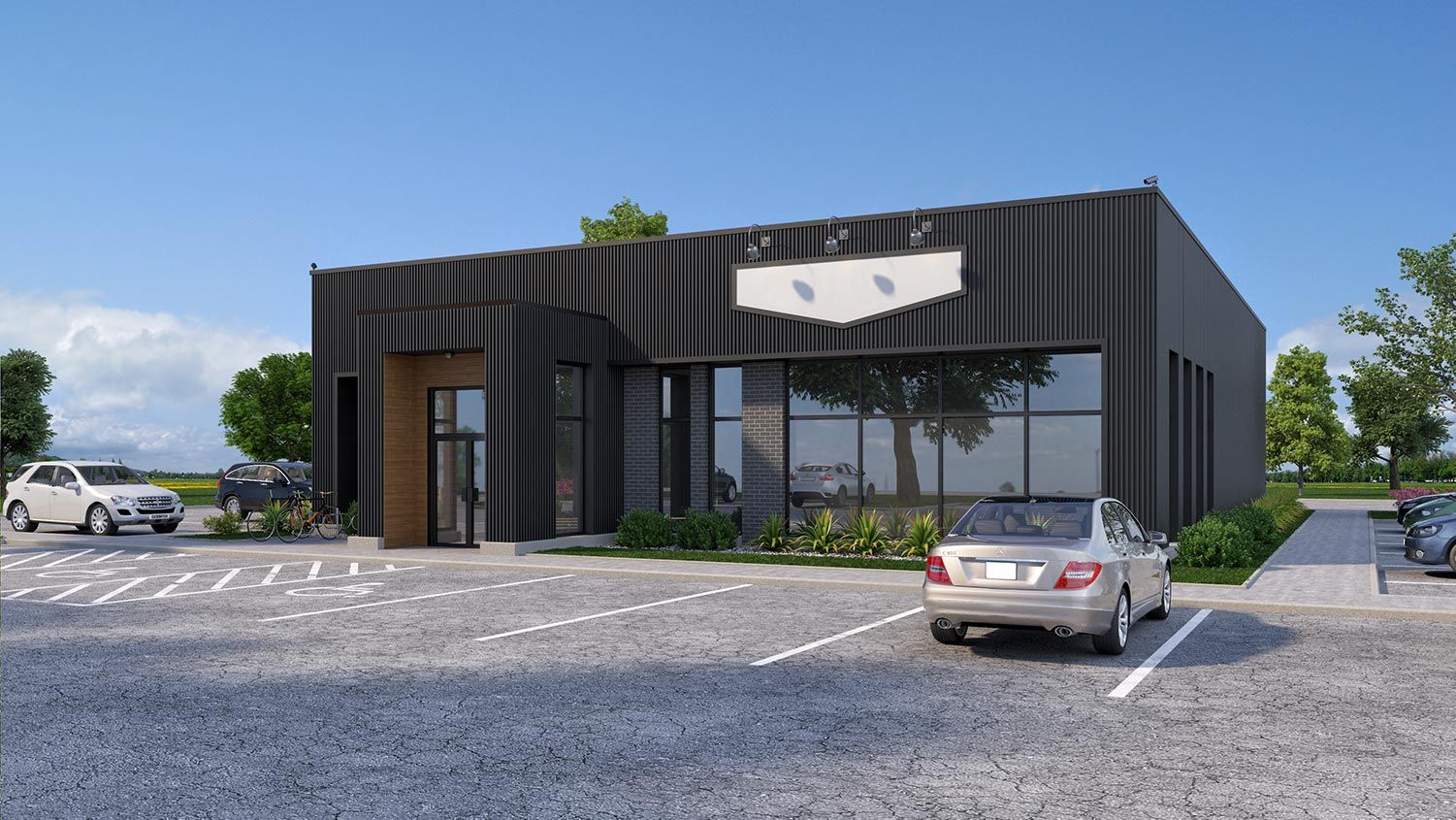License Application Best Practices: The Extensive Guide for Cannabis Entrepreneurs
Shortcuts
Know the Rules to Play the Game
While each state and country has different licensing processes, they share several common denominators. You will still need a thorough understanding of your market's regulatory nuances, but you will increase your chances of success if you follow these foundational guidelines.
Before rushing into the industry, armed with nothing but a "great idea" and a few team members, it's essential to understand the regulatory bodies that dictate the environment your business will operate within. For example, California allows third-party licensed cannabis transporters to deliver products from a licensed dispensary or retailer to your home, while many states, like Oregon, restrict cannabis delivery services to licensed retailers with storefronts.
Even in states and municipalities where adult-use cannabis is legal, transporters and delivery services can still be illegal. If delivery services are a large part of your business concept, you will need to research this information state-by-state and down to the local regulations. So, learn the laws and know the rules! In this industry, making assumptions about what you can and can’t do will lead to costly, if not irreversible mistakes.
Be sure to answer these questions in-depth:
- Do the laws in your intended location allow your product or service?
- What local, state, and county approvals do you need? Make a checklist and get familiar with all relevant departments and agencies.
- What is the timeline for the cannabis business license process?
- What are the requirements for each business license application that you need to submit?
- Will the regulations of this market support your intended business?
Unfortunately, the answers to the questions above can be elusive, and they depend heavily on how organized and prepared each state, municipality, and country is. By staying up-to-date with the latest laws, bills, emergency rules, and political conversations related to cannabis in your market, you’ll develop an understanding of the regulatory priorities. As you build your business articulation, keep these regulatory priorities top of mind, and go above and beyond to address them.
Remember, regulators are looking for compliant businesses that can generate sustainable tax revenue, jobs, and consistent access to safe medicinal or recreational cannabis products.
Demonstrate to regulators that you have the forethought not only to meet all current regulations but also to anticipate future state and federal laws. In the US, we rely on agencies like the Food and Drug Administration (FDA), the United States Department of Agriculture (USDA), and the Occupational Safety and Health Administration (OSHA) to ensure that the products we buy and our workplaces are safe. Since cannabis is still illegal on a federal level, these agencies have not enacted regulations specific to the cannabis industry.
By looking at how these agencies regulate similar industries, you can develop your business with federal laws in mind, even if the state does not explicitly require them. Additionally, since each state has different cannabis laws, you will benefit significantly from reviewing the requirements in other states. It will help you anticipate future changes that may impact your business. To succeed, you will need to keep up-to-date on local and state regulations and have the foresight and experience to implement them.
Assemble a Qualified Team
Selecting your Team
Why are you interested in entering the cannabis industry? Do you and your team's experience and passions uniquely qualify you to run a cannabis business? Assembling an experienced and competent team is vital not only for the successful execution of your business plan but also to demonstrate to regulators that you have the voluminous experience necessary to operate a compliant and sustainable business. When selecting your management team, be honest with yourself about what skill sets you have and which are needed to give your business the best shot. Your management team will need individuals with experience in regulatory compliance, corporate finance, cannabis business operations, and business leadership. Looking at related industries for experienced executives and operators can demonstrate your competence to regulators and jumpstart your business post-licensure.
Over the last couple of years, regulators have taken strides to increase the diversity of the cannabis industry in the United States. It is refreshing to see that virtually every new program has a social equity component. As you build your team, you will need to keep this in mind. Application scoring in specific markets makes it essential to create a diverse ownership team. For example, in Illinois, 20% of the points on each application were given to applicants that qualified for social equity status. Regulators increasingly require labor and employment plans as part of the application, so be sure to articulate how you will provide opportunities to qualified social equity candidates.
What Outside Help do you Need for the Application Process
While your management team should be qualified to support you in the business application process, hiring the right industry experts can make all the difference in your application's overall quality. You'll need lawyers with experience in the industry to draft and review all contracts, ownership agreements, and more. Consultants with experience in the license application process can provide project management services, application writing, recruiting, and industry best practices. They can also recommend and manage the outside vendors necessary to complete specific components of the application.
To complete the application, you will need the assistance of numerous professionals including real estate agents, architects, architectural rendering firms, security firms, accountants, and more. Having been through this process hundreds of times, we have seen many businesses come to us at the last minute with incomplete and haphazard applications. You don't want to be down to wire rushing to complete and submit your application.
Project Management - Strategic and Project Planning
The license application requires an impeccable project management strategy and thorough planning to succeed. There are so many interrelated tasks involved in the process that prioritizing incorrectly or forgetting a component can lead to inevitable failure. For example, some applications require submitting redacted versions with all identifying information removed. If you skip this step or if there are errors in your redactions, regulators may disqualify your entire application. At the end of the process, you'll have far too much invested to lose your chance at licensure due to simple errors. Even experienced entrepreneurs with tons of start-up experience tend to lose sight of how vital proper organization is to this process.
Strategic Planning
Start by figuring out your strategy and the tools required for managing the license application process. Be sure to include the following:
- What software will you utilize for project planning?
- How will your team communicate, and through what platforms?
- What naming convention will you use for your files (trust us don't skip this step)?
- Where will you store all of the files related to the application? Make sure to utilize a cloud-based storage system to ensure everyone has access to the data.
- Determine the assets required to complete the application.
- Who will work on the project, and what is their available bandwidth?
- What is your strategy for tracking the progress of the project?
Project Planning
Once your strategic plan is in place, it's time to develop your project plan. Below are a few of the items you'll need to consider:
- For which license(s) are you applying? If more than one, how many?
- Review the law and the application instructions and outline all of the application's required sections, forms, attachments, documents, etc.
- When and where are the applications due, and what is your timeline?
- Ascertain how much time each section will take.
- Prioritize and schedule each task to ensure there is adequate time to complete everything before the due date.
- Identify which components of the application are dependent upon the completion of other parts.
- Assign or hire individuals to complete each task.
- Be sure to give yourself a buffer of at least a week for your application's final review.
- Remain flexible during the project's execution as there may be regulatory or internal personnel changes that impact your project plan along the way.
Research & Secure Compliant Real Estate
Business licenses, more often than not, are attached to a specific piece of real estate. Securing compliant real estate can be extremely time-consuming, so you will need to get started as soon as possible. While you may not have complete clarity on your real estate needs at this point in the process, it's essential to know what your business will require and which properly-zoned properties are available in your municipality.
Specifically, you will need to research your municipal zoning requirements for cannabis businesses and identify sensitive use areas (churches, schools, daycares, parks, residential areas, etc.). Depending on local regulations and real estate availability, this process can be simple or extraordinarily complicated, demanding extensive resources and time. Once you understand your potential zoning roadblocks, you can establish a more realistic timeline to complete your application. Start by researching the following:
- How cannabis-friendly is the city or town?
- Which zones allow your specific operation type?
- What are the "sensitive-use areas" (churches, schools, daycares) defined by your state/municipal regulations? What are the distance requirements for each?
- Which properties are compliant?
- Are there any additional taxes for cannabis operators within the municipality?
One of the biggest challenges when securing compliant real estate is balancing your operation's unique needs with local zoning laws. Your business will inevitably have requirements that conflict with available properties. You will also have competition from other applicants to contend with, which simultaneously drives up prices and limits available options. Dispensaries and retail operations, for example, require a storefront that is easy to access, has an inviting atmosphere, sufficient parking, and regular traffic.
Factors to Consider When Vetting a Property:
- Which compliant properties best suit the needs of your business?
- Who owns the real estate? Are they interested in selling or leasing to a cannabis operator? Do they have a mortgage out on the property, or do they own it outright? Keep in mind; real estate needs to be privately owned or purchased. Banks and most institutions will not allow cannabis operations in any real estate that they own.
- Will it be retrofit or a new build?
- Is there enough space for current activities and future expansion?
- What are the applicable setback requirements for building a new facility or expanding an existing one?
- Are your neighbors cannabis-friendly?
- What is your proximity to other cannabis businesses?
Engage with the Community
When you apply for a local cannabis license, you are initiating a reciprocal relationship between your business and your community. Ensuring that the population is cannabis-friendly and creates enough demand for you to run a profitable business is critical. What will make your business a real success is the time you invest in getting to know the heart of your community. Identifying local stakeholder interests and understanding them, both at a glance and through the lens of your business, will allow you to tap into your market comprehensively. You will need to exercise both strategy and empathy, identifying and then addressing the specific needs or desires of your community, to initiate a genuine trusting relationship that gradually develops. Here are some questions to consider:
- Who is the demographic that you seek to serve?
- What is important to them?
- What are their interests and opinions?
- What does your community value?
- How can your products or services address their specific needs?
- Outside of your products or services, what can your business offer the community? Will you donate to local charities? Will you create head-of-household career opportunities for locals and minorities?
As you get to know your community, consider how you can create meaningful employment opportunities that provide value to the local population. Your business can have an even more substantial impact in areas that have been directly impacted by cannabis prohibition and those with high unemployment rates.
So how do you discover what matters most to a community and what their main challenges are? Here are a few ideas:
Community Engagement Checklist
- Attend town hall meetings to familiarize yourself with community leaders and key stakeholders.
- Visit locally-owned businesses and introduce yourself.
- Get involved with a local organization that you can be passionate about, which complements your business's mission.
- Volunteer, donate, or organize an event.
- Conduct public surveys.
Remember, without customers; you do not have a business. By addressing specific community concerns in the appropriate areas of your license application, you are both proving to regulators that you understand their priorities and care about your customers.
Design your Facility
Your facility has a tremendous influence on the potential of your business. The exact plans for your facility will depend on your business's operation type. Whether you're running a customer-facing dispensary or a business-to-business cultivation center, do not underestimate the importance of your layout design. To develop a well-rounded facility, you will need to work with knowledgeable architects, consultants, contractors, and engineers to create a design that allows for an optimal process-based workflow and includes state-of-the-art site security. Additionally, your plans should efficiently utilize available space for the revenue-generating components of the business.
When planning your facility design, it’s helpful to consider outside industries for inspiration; after all, cannabis cultivation has much in common with commercial cut flower production, as does a cannabis dispensary with other retailers. You will need to draft your site's layout and floor plans with several of the same parameters as other established industries, while also accounting for the specific requirements of cannabis facilities. Outlined below are some of the essential components of developing a facility plan for your license application.
Site & Floor Plans/3D Renderings
- Rooms for each distinct process
- Cannabis vault and storage area
- Layout designed for optimal workflow/customer flow
- ADA compliant parking, entrances, walkways, and restrooms
- Seamless design with the local environment
- Adequate parking
- Waste disposal
- Emergency exits
Security Plan
- Facility access controls
- Secure storage facilities
- Security training program
- On-site security personnel
- Law enforcement notification system
- Physical security infrastructure
- Video surveillance system
- Security alarm systems
- Digital security protocols
Craft a Detailed Business Plan
It is time to put all the pieces together! You have done your research and are probably up to your ears in regulations, ideas, and goals. When crafting your business plan, use this information to produce a tailored articulation of your business in each section of your application. Remember, regulators are looking for companies that can operate safely and compliantly while also generating tax revenue, so referencing specific laws within your application is essential.
While writing your business plan, keep your audience top-of-mind, as the language, and the focus of your articulation will vary depending on whom you are addressing. Critical stakeholders in the cannabis business development process that you will likely need to address include your community, regulators, and investors. To make your project appealing to each stakeholder, be sure to use the correct terms, and cater to their primary concerns.
An exceptional business plan keeps your mission, products, and services in focus. Some of the most critical areas your business plan include:
Company Description
Your company description should incorporate elements of your business's mission, goals, and founding story (if relevant). At a glance, someone should be able to read your company description and have no trouble identifying the scope and purpose of your business. Be sure to go into detail about what problem your company is solving and why.
- What customers, businesses, or organizations will your business serve?
- What is your competitive advantage?
- What are your strengths?
- Are there central team members whom you could reference to cement your mission?
Products & Services
Outline what products and services you will offer and discuss how they will benefit your customers. This element should utilize the research you've done on your target demographic to convey how you address their needs and desires. It should also address any specific regulatory limitations, avoid medical claims, and include any unique intellectual property you may have. Be sure also to describe your product's life cycle and how you will continue to develop your line.
Market Analysis
Your market analysis is a detailed look at your target demographic and industry within a specific market. A market analysis is not the same as a Marketing plan; instead, it is a critical element of it. Your analysis will inform your primary marketing and advertising approach, based on clear and well-researched data.
- Who are your customers?
- What are their buying habits?
- How many potential customers are near your storefront or operation?
- How much are customers willing to pay for similar products?
- Who are your competitors?
- What are the strengths/weaknesses of your competitors?
Management and Organization
A common trope in a cannabis license application is identifying and articulating the qualifications of your principals. Do members of your management team have relevant cannabis or outside industry experience? As you develop your business plan, you'll need to create an organizational chart and cap table to show the roles and breakdown of ownership in your company.
Furthermore, the structure of your companies is often the difference between losing money and profiting in this industry, especially taking into account the challenges that IRC 280E imposes on cannabis businesses in the United States. Separating your business into individual entities (a property management company, IP company, and hands-on operational company) is usually the best move.
Strategy and Implementation
- How will you build out your business once licensed?
- What will be the specific challenges of your operation?
- How will you produce, or where will you purchase your products?
- What is your strategy for marketing to your target customers?
Financial models
Regulators, investors, and potential partners will need to see well developed financial models to access your business. We recommend creating projections that cover the next five years. Below are some of the critical elements of your models:
- Estimated capital requirements to build-out, launch and operate pre-cash flow
- Source of capital
- Cost of production
- Wholesale/retail price projections
- Capital expenditure/operating expenses
- Sales projections
- Timeline to profitability
Executive summary
The executive summary is a comprehensive and concise summary of all that is in your business plan. It should be written last and will be at the beginning of your business plan. An excellent executive summary will identify:
- The intention of your business
- The outcomes you seek to achieve
- Your goals and how you will reach them
- The specific decision that you want the reader to make
- Who your management team is and what qualifies them to operate the company
- How much capital you have and how much will be needed to reach profitability
- Your go-to-market strategy
Develop your Operating Plan
Your operating plan outlines in detail how you will execute your specific operating strategies. Some markets require comprehensive operating plans as a part of the application process, while others do not. Regardless, you'll want to take the time to establish detailed procedures in advance. While every business course-corrects along the way, relying too heavily on the figure-it-out-as-you-go approach in the cannabis business will be costly and significantly increase the chance of failure.
The topics that you cover in your operating plan will vary depending on the type of cannabis business you intend to create. The details included will need to cover everything you and your employees will face in the company's day-to-day operation. Well developed Standard Operating Procedures (SOPs) increase efficiency and provide clear guidance to employees on how to navigate specific tasks and situations. So what exactly is included in an operating plan? Here are a few examples of specific items to include, organized by operation type:
- Cultivation
- Propagation procedures
- Vegetative pruning and training
- Fertigation and watering
- Environmental control for each phase of plant growth
- Integrative Pest Management plans (IPMs)
- Extraction/Manufacturing
- Raw material receiving
- Worker safety procedures
- Equipment and facility cleaning and maintenance
- Extraction protocols
- Sampling and ingredients
- Product packaging
- Waste disposal
- Lab Testing
- Product receiving and storage
- Equipment calibration
- Sample preparation methods
- Client and regulatory reporting
- Data storage
- Distribution
- Software systems
- Receiving and delivery protocols
- Record keeping
- Metrics and practices used to optimize inventory
- Secure transport procedures
- Product storage
- Retail
- Receiving inventory
- Security plans
- Video surveillance
- Alarms and monitoring systems
- Access areas
- Product selection process
- Counting & reconciliation procedures
- Secure storage
- Return policies
- Methods for preventing entry and sales to underage individuals
- Business Admin/Marketing
- Recordkeeping
- Accounting and Finances
- Employee qualification & training
- Project management
- Marketing plan
- Secure data storage
In the context of a license application, you'll need to be sure that your plans address the following questions, as they represent some of the current regulatory priorities.
- How will you produce or sell consistent, safe, high-quality products?
- How will you track materials from seed-to-sale to ensure there is no illegal diversion of cannabis?
- How will you verify that qualified medical patients or adults over the age of 21 are the only customers?
- Does your team have the experience and plans to successfully execute your business model, therefore, ensuring consistent tax revenue?
- How will you maintain the security of your operation to reduce the risk of theft or illegal diversion?
- How will your business serve the local community? Head of household job creation? Community service initiatives?
Ultimately, we wish you the best of luck with your application! Jumpstart your business development and planning today by leveraging our expertise and best practices honed while working with over 500 cannabis companies worldwide. Domain expertise is vital to a successful license application; contact us today to discuss your project.
Recommended Articles
C O M P A N Y
R E S O U R C E S
S E R V I C E S
©2024 3C Consulting, LLC™. All Rights Reserved. Terms of Use | Privacy Policy







